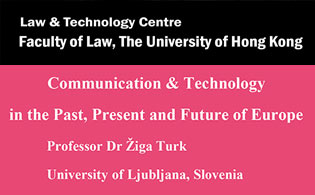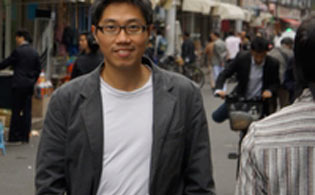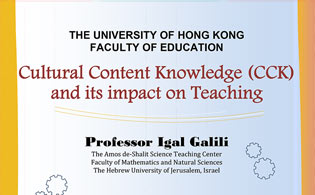
Message from Law & Technology Centre
Dr Žiga Turk
Professor in Construction Informatics, University of Ljubljana
Time: 12:30pm-1:30pm
Venue: A8.25, Cheng Yu Tung Tower, Centennial Campus, HKU
Abstract
Elements of society, individuals, families, businesses, states and other organizations are held together by communication. Throughout history, communication technology was a factor in the rise and fall of the empires. The success of the European civilization in the previous centuries can be attributed, in part, to the continent’s openness to innovation in communication technology. Currently the whole world is witnessing a revolution in this technology. Lessons can be learned from the past and from analyzing the present. This is being done on one hand in policy strategy projects that put the ICT developments into a broader context of global trends. On the other, a scientific base is being created by a new interdisciplinary science called Internet Science. Some results of both kinds of projects taking place in Europe will be discussed.
About the Speaker
Žiga Turk is a Professor in Construction Informatics at the University of Ljubljana. Born in 1962, he holds a B.Sc. in Civil Engineering, M.Sc. in Computer Science and Ph.D. in technical sciences. He wrote over 100 scientific papers in this field and has been editor or editorial board member of several international journals. In addition to his academic career, he was twice a minister in the Government of Slovenia and Secretary General of the Felipe Gonzalez’s Reflection Group on the Future of Europe.
Besides technology, his recent research activities include the trends and scenarios of future global developments, particularly the role of information technology and innovation in those trends. He also studies the broader societal impacts of information technology and is active in the topic of “internet science”. He took part or was coordinating several European framework projects. He is also an internationally recognized public speaker, columnist and visiting professor on these subjects.
In 2007 and 2008 dr. Turk was a Minister for growth in the government of Slovenia, national coordinator for the Lisbon Strategy and chief negotiator for the Slovenia’s accession to the OECD. From 2008-2010 he served as Secretary General of the Reflection Group on the Future of Europe. In 2009 and 2010 he chaired a High Level Group to recommend the future evolution of European academic networking (GEANT). From February 2012 until March 2013 he was Minister for Education, Science, Culture and Sports in the Government of Slovenia.
ALL ARE WELCOME
For registration: www.law.hku.hk (Seminars & Conferences)
For Inquiries: Miss Zita Kwok (email: zitakwok@hku.hk)



